CoffeeTrace: Koltiva’s tailor-made app for the coffee supply chain
Written by Aída Palomo, sponsored by Koltiva
Following our interviews with some of our sponsors, we had the pleasure to chat with Manfred Borer, Chief Executive Officer of Koltiva, a well-known integrated agriculture technology company in the cocoa sector that is starting to build a name in the coffee industry with its tailor-made software solutions and services.
For eight years, Koltiva has worked tracing a variety of supply chains as cocoa, palm oil, seaweed, and other natural ingredients in a top-down approach, and coffee was not the exception. Prompted by a customer’s request and backed by their experience, they build the “from farm to cup” experience into a traceability application that has been fully tested in other products. “We already have the basic design in terms of technology to adapt to coffee, but it was a full start from scratch since we need to adapt it to the coffee industry”, says Manfred about their CoffeeTrace app.
Holistic End-to-End Solution from Koltiva for the Coffee Industry (Picture credits Koltiva)
How do Koltiva’s applications work?
Koltiva’s technology is a cloud-based database where their clients manage their own data, and Koltiva’s staff help their clients to verify such data. In other words, “it is a human-centered system in which the application is just a tool to support the actors, the traders, the small middlemen enterprises and cooperatives to continue doing their business, but in a much more transparent way”, explained Manfred.
Once their clients ask for their services and start using the application, Koltiva goes “boots on the ground”: they go down the chain, in every step where there is added value. “If [the client] has agronomists, we go to the field with them, use our app, and train everyone to use it, to evaluate the farms properly. […] We go down the chain physically and meet these people along the chain and start digitizing upstream. First, you map the business, map everyone in aggregating coffee; you end up with the farmer and from there you can start providing information on sustainability standards, on compliance, on deforestation, on exploitation… because you have the actual data. If you go that way you can digitize the traceability”, explains Manfred. By going the way back from the farm to the cup, Koltiva’s clients can start selling through a chain they know well and, most importantly, they can achieve —and claim— sustainability since they know, with accuracy, where their products come from.
Traceability and added value
This is of the highest importance for Koltiva since they are aiming to go “beyond traceability”. Koltiva traces to add value. Their e-payments are just an example: “When there’s a delivery of coffee or parchment to the collector, they put it into the system (quality, volume, and price) and there’s a cashless payment system integrated into our application to pay the farmers”, explains Manfred.
Koltiva’s traceability consists of the software —of course—, and mainly and more significantly of their service. Their service is the users of their apps, “the boots on the ground” that verify the data going into the system. “The only way to verify traceability is to go to the field, with the farmers”, states Manfred. “Agritech is amazing, but it doesn’t replace human interaction with a farmer for 3-4 hours. Our agronomists know the potential of a farm by going there, talk to the producer, count their trees, and knowing their needs”.
Digitalize the traceability starts from the farm, not the port (Pictures credits Koltiva)
Certification, better practices and sustainability
Koltiva has more than 300 field trainers in Indonesia (and started recruitment in other origins) on the ground for spot checks, for checking on sales, supporting and training users and farmers in the usage of the app, and also for verifying that the uploaded data is real. “If we talk about segregating the real traceable coffee in the warehouses and verifying the volume put into the system, for example, any software will solve that problem. The only way to see if it is real is going there”, says Manfred. Koltiva helps and supports their clients to comply with responsible sourcing, and also to be prepared for audits or external certifications (Fairtrade, Organic, etc.). Koltiva doesn’t provide those certifications, but they can run the internal management system for its clients to get them. “We do the inspections, and make sure the traceability, we do a 100% verification, not a square root sample audit”.
Thanks to their “boots on the ground” and their full knowledge of the rural value chain, they can also improve producer’s good agricultural practices, “we have findings during our inspections, and through our app, a farmer gets a development plan in FarmCloud, or one of our coaches gets a notification on their FarmXtension app to help a farmer to improve their practices” to continue complying with the standards, explains Manfred. And also adding to environmental sustainability by highlighting producers’ activities in protected forests, use of pesticides, fertilizers close to rivers, etc.
At this point Manfred is straightforward: “There is no sustainability without traceability. It doesn’t exist if you don’t visit your farmers and don’t count the trees and verify that they produce coffee. The only way to claim sustainability is to map and digitize the supply chain. A sample is not enough.”
How is coffee different from other value chains?
When we asked Manfred about the differences that he could observe in the coffee value chain against other supply chains, he started by telling us their similarities: they are “structured with a lot of middlemen and traders. Sometimes, if you are lucky, you have paper trails. But the closer you go to the farmers there is no more paper trail, you deal with a situation where you have no recorded data. There’s nothing traceable”. And in coffee, besides this, “there are smaller players, [there are] not many big players paying for traceability or certification, there are no companies that reduce the risk for producer organizations”, says Manfred.
Unlike other industries in which big companies are willing to buy all the verified production and pay for traceability, coffee producers have to track their activities and register data to get a certification by themselves, which is a big and risky investment that not always pays off. This situation is worsened by volumes that don’t justify such investment for the end buyers. So, “if nobody pays for it, how do we expect that coffee producers do all of that nitty-gritty paperwork or using digital solutions like CoffeeTrace? They need that investment to get certified, but someone at the end of the chain has to pay for it”, states Manfred.
Koltiva’s response to this problem is their service through CoffeeTrace: on-going support to end buyers to have better prepared and certified suppliers, who will receive added value that will help to build up loyalty. Moreover, they could truly state their sustainability by fully verify their supply chain with “the boots on the ground”, the human side of this integrated agriculture technology.
Sugata, one of Koltiva first clients in coffee (Picture credits Koltiva)
Their mission and future
Thirteen years ago, when starting to work in agriculture value chains, Manfred was told that he “could not interview everyone in the chain” and that has been exactly his approach to traceability and transparency. Nowadays, Koltiva’s mission is to “transition to sustainable production and traceable sourcing from seed to table, to enable their clients to reduce costs and risks in global value chains”. And they have been doing it through their customized applications and “their boots on the ground”.
Koltiva has been building up their system, and they are willing to continue adapting their model and expand into the coffee industry, “maybe they don’t know us yet, but we are getting in there”.




